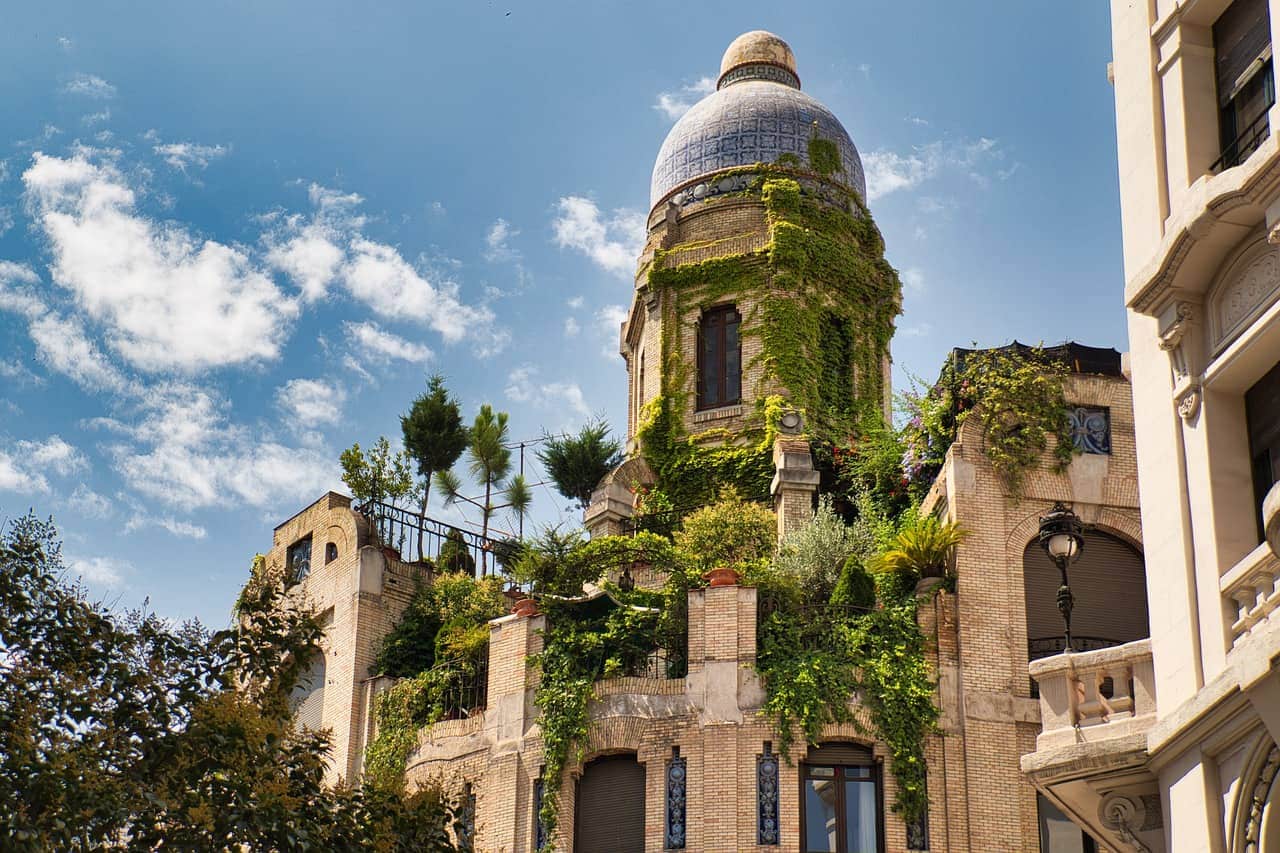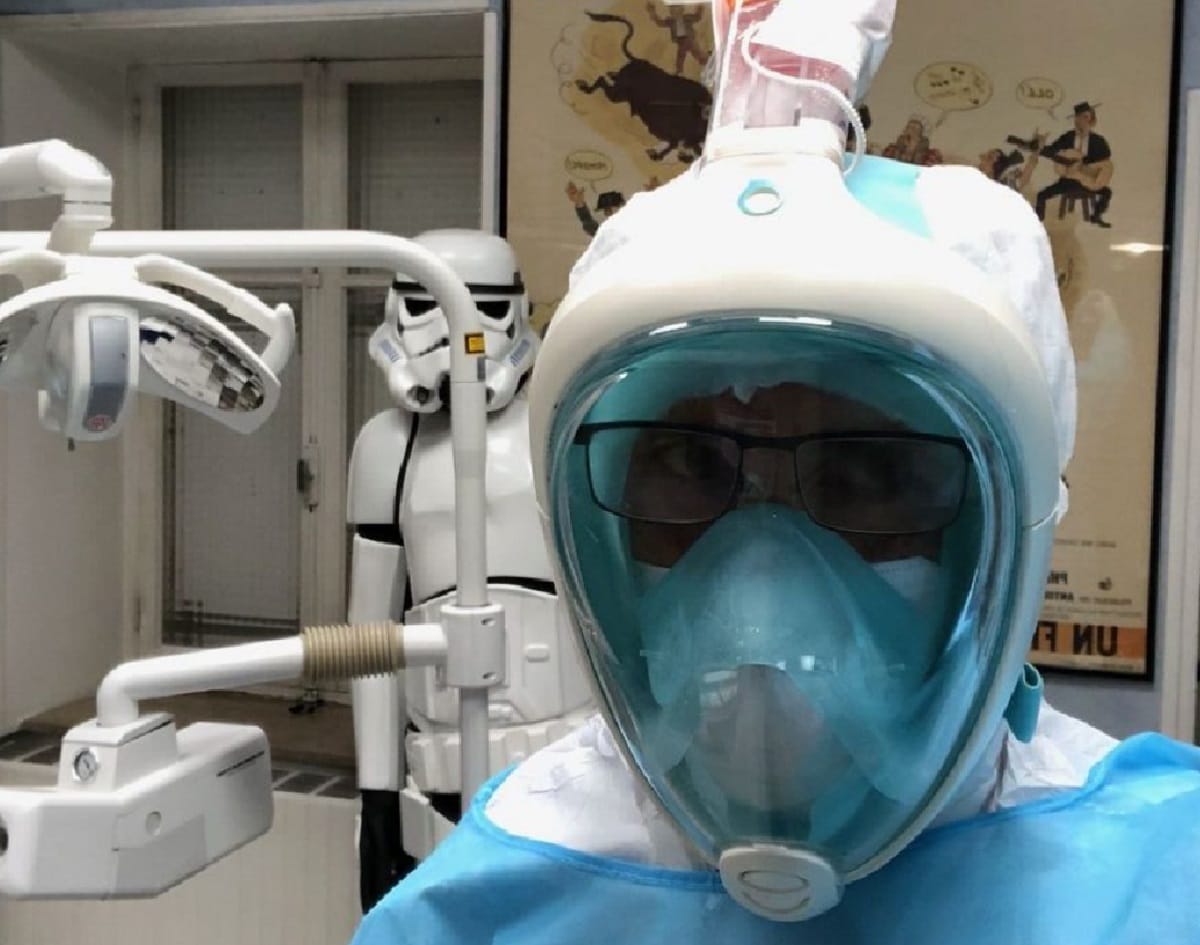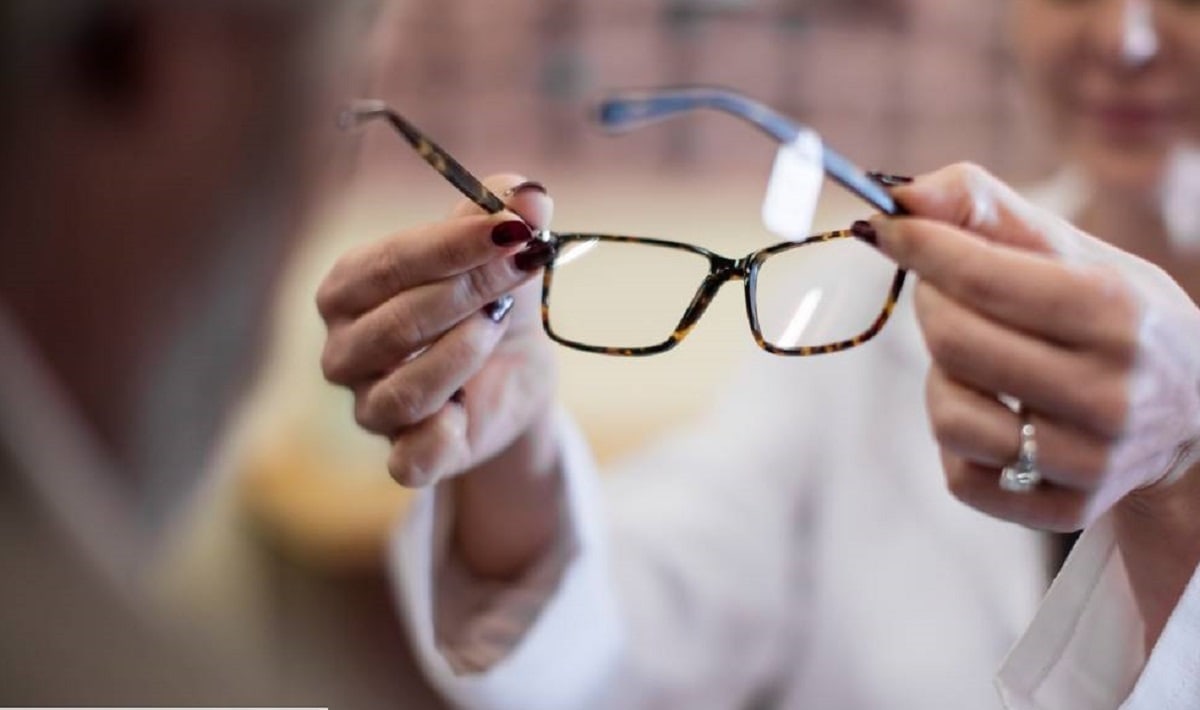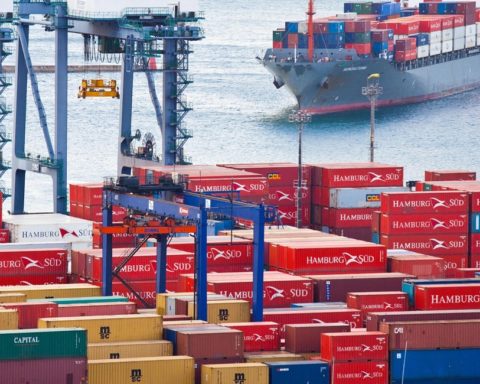 This article originally appeared in Green is the new Black is republished here as part of UP' Magazine's partnership with Covering Climate Now, a global collaboration of more than 400 selected media outlets to strengthen news coverage of climate change.
This article originally appeared in Green is the new Black is republished here as part of UP' Magazine's partnership with Covering Climate Now, a global collaboration of more than 400 selected media outlets to strengthen news coverage of climate change.
"Only a crisis, real or perceived, produces real change," said the famous American economist Milton Friedman four decades ago. "When this crisis occurs, the actions that are taken depend on the ideas that are circulated."
Crises shape history. That's why some people think that the global pandemic is our only chance to reinvent society and build a better future. We must seize this opportunity to act. Because if we don't, those who don't want the better world we want will take power - in fact, they already have it. But don't panic right away. The good news is that the ideas that can change the world are circulating. The people who want to change for a better world are here. Now we just need to put it all in order.
Before we embark on dreams of the future, we need to make sense of what is happening here and now. Because social media is a kaleidoscope of fragments of life, it lets us see what is going on, through images, videos, anecdotes, stories, updates on changes in social status, comments, relayed information, ... Airlines are flying empty to protect their slots on major air routes. Farmers and horticulturists are left with a surplus of perishable goods that they can't deliver anywhere. Hedge funds have even been accused of raking billions of dollars into the markets. When we step back from the relentless onslaught of information, we discover a simple truth. Absurdly, our society is broken.
As scholar and writer Keeanga-Yamahtta Taylor explains, " There are times where, in the midst of a crisis, the true character of our society is revealed and the brutality of our social hierarchy is exposed. "It has never been clearer to anyone that normal is a crisis. Normal is a crisis. Let's be clear. Inequality of wealth is normal. Exploitation is normal. Discrimination is normal. Profit over people is normal. We weren't really paying attention. This global pandemic is a great developerbecause now we're paying attention.
Normalcy is a crisis
Because inequality of wealth is normal, a pandemic for the richest among us looks like: staying at home for extended periods of time that are "unbearable", in "claustrophobic" spaces (i.e.: comfortable houses), having to cancel holidays and spending nights ordering online. While the same pandemic for the less rich looks like anything else: not being able to pay rent and possibly losing your house, worrying about whether you will be able to afford your next errands, or working or studying in a home where domestic violence is a daily reality.
With "normal" operations, essential workers who can't afford to stay home to be safe have to go to work without adequate personal protective equipment or hazard pay - and don't even think about sick leave. Billionaires want people to return to work as soon as possible." It's for the economy "They have to go to work and are forced to put their lives and the lives of those around them in danger.
Because discrimination is "normal," the claim that coronavirus is the great equalizer is absolutely false. Minorities, who are more likely to suffer from chronic diseases, who have less access to health care, are more likely to be affected by the disease. hard hit.
Our current business model is flawed
In the words of author and activist Naomi Klein, this economy " has always been willing to sacrifice life on a grand scale in the interest of profit..."She adds: In a rational world, we would increase the production of essential commodities - test kits, masks, respirators - not only for our own use, but also for the poorest countries. Because it's all one battle. But this is not a rational world." Now people who were blind before turn on their TVs. And they see what? What kind of system is that? "But he is, as we've established, "normal. " That's not new. It's not a more radical phase of capitalism. What's more radical is the scale of the sacrifice..."
Historian Mike Davis, a famous chronicler of the disasters caused by globalization, wrote: " In a rational world, we would increase the production of essential commodities - test kits, masks, respirators - not only for our own use, but also for the poorest countries. Because it's all one battle. But this is not a rational world."The great irony here, of course, is that our economic model is supposed to be rational. It's supposed to be efficient. It's supposed to allocate resources to produce better living conditions for all of us. And most importantly, it's supposed to make sense.
It's time to recognize the truth
Periods of crisis reveal the true viability of the models we use. As theexplained Dr. S. George Marano, a geopolitical and economic analyst, our world trade order is based on Ricardian theory of competitive advantage, neo-liberalism, the economics of "The cogs of our global trading system move in unison when properly lubricated, and now that the lubricant has started to dry up and friction between the cogs is increasing, we are seeing a slowing down, much like a ticking clock.on the fetish of total shareholder profit, and more. The shareholders " favoured the offshoring model, which overemphasized opportunism over risk in the pursuit of resource efficiency and profit.". But today, " complex supply chains show signs of instability"
It would be unfair to say that the model has failed. It hasn't. At least not entirely. Because it has brought us innovation and growth. But these successes are not evenly distributed. And that's part of the reason the model is not resilient. The fact that "a single virus can wipe out the entire economy in a matter of weeks and shut down companies..."It is time to recognize that our neoliberal-capitalist model is imperfect.
Change is necessary - and change is possible
We must not let ourselves be overwhelmed by the immense prospect of all that needs to be done. And we certainly cannot give in to the return to the status quoAs the writer and director Julio Vincent Gambuto warns in his poetic call to armswe must prepare ourselves for" the biggest campaign ever for a return to normalcy..."It will come from the brands, it will come from the government, it will come from each other, and it will come from the left and the right. We will do anything, we will spend anything, we will believe anything, just so that we can end the horrible discomfort that this crisis is causing.
We have to accept this unease and remember how much change has already taken place during this period. The extent to which governments, institutions, businesses and societies have evolved is remarkable. In response to the crisis, governments have put in place some of the largest economic stimulus packages in history. In some cases, rents have been cancelled, payments have been delayed. Homeless people are being housed free of charge. And to varying degrees, governments are providing them with partial unemployment or, as in Spain, a basic income.
- READ IN UP' : Pandemic Creates Basic Income Urgency
This is not to say that we should celebrate the pandemic, but we should remember that during this period we have seen that another, more humane world is possible. We have become accustomed to governments and corporations rejecting calls for more humane policies and ambitious changes because they are "too risky". Yet here we are.
This is no longer 2008
" Any glance at history reveals that crises and disasters have continually prepared the ground for change, often for the better.". Nicole Teke, spokesperson for the French Movement for a Basic Income (MFRB), created in 2013, wrote The Guardian." The global influenza epidemic of 1918 contributed to the creation of national health services in many European countries. The twin crises of the Great Depression and the Second World War paved the way for the modern welfare state." Of course, one must be wary, because crises can also lead to very unfavourable conditions - " the financial crash of 2008 was resolved in a way that allowed banks and financial institutions to return to pre-crash normality at high public cost, while public spending on public services around the world was reduced"
But it's not 2008 anymore." I think we're so different from what we were before we saw the consequences of the 2008 crash." said American writer Rebecca Solnit, one of today's most eloquent investigators of crises and their implications. " Ideas that used to be considered left-wing seem more reasonable to more people. There is room for changes that didn't exist before. It's an opening."Unlike 2008, the pandemic is relatively easy to understand. Unlike 2008, we can clearly see the failures of the system. And unlike 2008," for people of a certain age, their only experience of capitalism has been a crisis. And they want things to be different..."says Naomi Klein.
The policies we want are not radical at all, they're sensible and humane.
Just like the virus itself, political awareness is spreading rapidlyThe young milleniums are angry. Even Generation Z is angry - just look at the memes, tweets, posts and even the anti-capitalist TikToks. Indeed, " like the virus itself, political awareness is spreading rapidly..."Those who pay attention spread the word, and people around the world are beginning to realize that education should be a right, that debt should be cancelled, that landlords, bosses and CEOs are not essential, and that a for-profit economic system is simply barbaric. People understand that housing, health care, food and education should all be basic human rights, and that "education should be a right. industrial production and technology should be oriented towards the satisfaction of human needs first and foremost" It took a catastrophe for the state to assume its original responsibility to protect citizensPerhaps the most striking change of all is perhaps the change in the way people perceive governments. Like thewrote Pankaj Mishra: " It took a catastrophe for the state to assume its original responsibility to protect citizens"People now realize that the state must be held accountable for its duty to act decisively in the common interest. People are becoming aware of these public-interest policies and are now demanding that governments implement such policies. And those who demand them are, after all, not so radical.STEP 1: Beware of disaster capitalism
As we alluded to earlier, there are people who are trying to profit of this crisis. They want to rebuild a world that benefits only a few and sacrifices many. Naomi Klein, who wrote a book in 2007, used the term "...". The Shock Doctrine (Doctrine of Shock)". It describes the phenomenon whereby polluters and their government allies push unpopular political changes under the smokescreen of a public emergency. Sounds crazy to you? It already does.
All these policies are being pursued under the pretext of stimulating the economy and returning to the status quo ante. Such a short-term vision will only have devastating consequences in the long term.In a recent webinar, Naomi Klein made this comment: " We are witnessing a very selective use of emergency measures, the use, instrumentalisation and arming of states of emergency in order to offload risks onto individual workers, onto individual families, while those who are already the most protected benefit from these unconditional bailouts."We have seen the US Environmental Protection Agency announce that it will not punish violations of pollution regulations as long as companies can link these violations to the pandemic. China has begun to waive inspections that assess the environmental impact of industrial facilities. Singapore has just confirmed its continued partnership with ExxonMobil and the expansion of its multi-billion dollar offshore facilities.All of these policies are being pursued under the pretext of stimulating the economy and returning to the status quo ante. Such a short-term vision will only have devastating consequences in the long term, but how can we fight against catastrophic capitalism?
Know your enemies: first, the big oil companies...
The mastermind of disaster capitalism is, of course, Big Oil. This week, the...information It has been announced that carbon emissions from the fossil fuel industry are declining at a record pace and could fall by 2.5 billion tonnes this year due to unprecedented restrictions on travel, work and industry. This would dwarf the carbon falls triggered by the largest recessions in the last five decades combined. In addition to the price war that is pushing world oil prices to their lowest level in decades, producers struggling to find storage space for surplus oil, predictions of record bankruptcies among oil companies by 2020, and the perceived low returns on future investment in new oil and gas fields compared to renewables, some commentators have speculated that this could be the good news we so desperately need.
The pandemic could " kill the oil industry and help save the climate"exclaimed a title from The Guardian. But like Theexplained academic Adam Hanieh for The Atlantic: " Such idyllic scenarios, however, tend to overlook the realities of a "disaster capitalism" inexorably linked to the extraction and exploitation of fossil fuels, and which has deeply embedded "Big Oil" in all facets of our lives."
In his incisive analysis, he highlights two key observations. The first is that the mega-firms known collectively as "Big Oil" (ExxonMobil, Shell, BP, etc.) are more likely to survive this crisis by their size than small producers. In fact, they are expecting the wave of bankruptcies. This crisis is likely to centralize the control of these oil majors. The second observation is the reduction of environmental regulations as noted above. According to Adam Hanieh, these two elements can come together to create "the "Big Oil" crisis. an emboldened and resurgent oil industry, positioned ever more centrally within our political and economic systems"
Know your enemies: Silicon Valley is booming
Naomi Klein noted that we had already started living in " Silicon Valley dystopia." but that with the coronavirus crisis, we've had "catapulted blindfolded into the wildest dreams of high-tech giants... "Digitization has never been more widespread." Our social relations are mediated by platforms such as Youtube, Twitter, Facebook, etc. Our daily calorie intake is provided by Amazon Prime"Apart from the monopolization of big technology (we'll come back to that in a moment), more and more of our data is being monitored, exploited and used.
Shoshana Zuboff, author of The Age of Surveillance CapitalismShoshana Zuboff explains that prior to September 11, the US government was in the process of developing serious regulations regarding web users and their browsing patterns, as well as the way their personal information was used. Within days, Shoshana Zuboff explains, ". the focus has shifted from "How to regulate these companies that violate privacy standards and rights" to "How to maintain and protect these companies so that they can collect data for us."
For governments seeking to monitor their citizens even more closely, and for businesses seeking to enrich themselves by doing the same, it would be hard to imagine a more perfect crisis than a global pandemic." For governments seeking to monitor their citizens even more closely, and for businesses seeking to enrich themselves by doing the same, it would be hard to imagine a more perfect crisis than a global pandemic.". Nicole Teke, spokesperson for the French Movement for a Basic Income (MFRB), created in 2013, wrote The Guardian. In China, drones track people without masks. Germany, Austria, Italy and Belgium use anonymous data from major telecommunications companies to track people's movements. Israel's national security agency has access to the phone records of infected people. Singapore has even created an application that allows citizens to report people who are not safe remotely (encouraging citizens to keep an eye on each other).Of course, the technology can help us fight the virus. But Zuboff's afraid that " these emergency measures only become permanent, so embedded in daily life that we forget their primary purpose"
The greatest danger to systemic change is not related to how major technologies could threaten privacy.
Many people are sceptical about the privacy argument, but the real problem goes far beyond protection. Essayist Yevgeny Morozov says that dystopia is a "solutionist" dystopia. "Solutionist": because there is no alternative (or time or funding); the best we can do is to apply digital band-aids to repair the damage. Solutionists deploy technology to avoid politics; they advocate "post-ideological" measures that make the wheels of global capitalism turn."Today, this practice has become the answer to many of our problems.
Morozov observes that neoliberalism and solutionism " have an intimate relationship"Neoliberalism aspires to reshape the world according to Cold War plans: more competition and less solidarity, more creative destruction and less government planning, more market dependency and less welfare. So digital plasters are the best kind of apolitical solutions." Neo-liberalism reduces public budgets; solutionism reduces the public imagination. The mandate of solutionists is to convince the public that the only legitimate use of digital technologies is to disrupt and revolutionize everything but the central institution of modern life - the market."
So what's the real risk? It's that the solution toolbox will become " the default option to deal with all other existential problems " It certainly includes climate change. " After all...concludes Evgeny Morozov, it is much easier to deploy solutionist technology to influence individual behaviour than to ask difficult political questions about the root causes of these crises"
Have we ever talked about Amazonization?
L’amazonization The term, as Brian Merchant, editor-in-chief of VICE magazine, explains, refers to the displacement of traditional jobs and small local businesses to "...the development of new technologies and new ways of doing business...". inexpensive part-time work for technology giants that distribute and offer products and services through online platforms"And it encompasses all kinds of e-commerce and distribution platforms. Amazon has just hired an additional 100,000 workers to cope with the explosion in demand for online services. Instacart, Walmart, Grocery and Shipt are registering record downloads. Blue Apron's, a meal kit delivery service, has seen its stock jump by 70 %.
All over the world, we're seeing small businesses being swallowed up in this revolution. Brian Merchant explains that the average small business doesn't have enough cash to operate for 27 days without going bankrupt. Combined with declining demand and rent pressures, the amazonization will only accelerate even more." If restaurants, bars and local shops close down permanently while application-based monoliths suck customers and jobs out, it will be very difficult to reverse the trend. And that is something that will be very difficult to reverse, Merchant writingis not the future we want."
What would be the effects of Amazonization on our local economies?
Brian Merchant goes on to talk about the Silicon Valley dystopia of Amazonization. On the one hand, he writes, it means " increased use of precarious and part-time labour in the form of seasonal and highly replaceable warehouse workers or flexible delivery workers, who work from home. Let us be realistic: as long as we are not prepared to pay more, as long as we want cheaper, faster and more convenient, margins will tighten, and the minimum wage, if it is not blocked, could even become lower and lower.exhausting hours without any advantage"These so-called "essential" workers are increasingly disposable. We will have more and more people on minimum wage. And let's be realistic: as long as we are not prepared to pay more, as long as we want cheaper, faster and more convenient, margins will tighten, and the minimum wage, if it is not blocked, could even become lower and lower.
Second: we will also see " monopoly control of platforms that can make or break business on a whim "The decisions made by these platforms will have far-reaching effects on the livelihoods of thousands of people. Amazon, and similar platforms, control the rules. We are already seeing the effects. Amazon has announced that it is suspending shipments of all non-essential items, which has had an impact on the livelihoods of thousands of people. crippling effect on many third-party vendors.
Fewer people, less care, less community
You thought it was over? There are worse things.
We're moving towards a world with fewer jobs. Amazon is working." a vision of automation designed to inspire investor confidence, fuel the public imagination and prevent workers from challenging and protesting for higher wages; and"How soon? 2030. Fully automated warehouses by 2030. Whether they do it or not by then, it's the intention that should scare us. Chinese companies are using the pandemic to introduce more automation. Google is also very involved." After all, a perfectly efficient and unmanned logistics company is the dream of these companies."
Finally, Merchant concludes, echoing Naomi Klein, that Amazonization is "..." the clearest invocation to date of a technical shock doctrine "...the privatization and technicalization of healthcare. Before the pandemic, Amazon apparently had already planned to launch Amazon Care. And now they plan to partner with the Gates Foundation to provide test kits. " Needless to say, the transfer of public services to for-profit companies rarely bodes well, especially when it comes to human health issues."
Maybe this is the new normal we're going to have to get used to in a post-viral world?
STEP TWO: Reject the new normality
We don't have to accept the new normality. Evgeny Morozov proposes a "post-Solutionary" policy and asks: " What institutions do we need to exploit the new forms of social coordination and innovation offered by digital technologies? "Indeed, there's no turning back. There's no way to conceive of a world without... devices and not everything is to be dismissed entirely in the Big Tech. Instead, we must work for a world that masters high tech. A world that makes sure it recognizes its imperfections and strives to do better.
The biggest risk for all of us will be to waste our time this time sitting at home on our social media feeds, experiencing the extremely limited forms of politics that are allowed there.It's also what we need to do, generally speaking, if we're going to have a better post-viral world. " The political outcome of the epidemicexplains historian Mike Davis, will, like all political issues, be decided by struggles, battles of interpretation, highlighting what causes problems and what solves them. And we must make this analysis known to the world by all possible means."Many people, institutions, governments, Big Tech, Big Oil, etc., will say that the status quo is the only way to get back on track. Who will argue that maintaining the status quo is the only way to turn back the clock. Which seems... normal. So we need people who inform, who alert, who exchange, like you and me, to send the message that we don't need this kind of normality in the world.And sometimes we'll have to hang up our smartphones to do so. As Naomi Klein reminds us: " The biggest risk for all of us will be to waste our time this time sitting at home on our social media feeds, experiencing the extremely limited forms of politics that are allowed there. ".
STEP THREE: Reframe the story
As Ted Nordhaus and Alex Trembath of Breakthrough Institutean environmental research center, " Environmentalists will have to spend more time making the economic case for the infrastructure they want to build, and less time making the climate case against the infrastructure they want to stop."One may not entirely agree with this statement, but the sentiment is not false.
We need to show the viability of our alternative models. At the same time, and not necessarily instead, we need to show how the existing system is failing. Fortunately, there are already many studies that prove that the cost of inaction is far greater than the cost of putting the climate agenda on the table.
Now it's a matter of making sure that our communities know about it and that the media amplify it, and that our politicians hear it and act on it.
Rebuilding a better world is already under way.
Faith Birol, Director of the International Energy Agency (IEA) advised G20 governments to commit approximately $5 trillion to stimulate their post-viral economies, " Putting clean energy at the heart of stimulus plans"The EU claims that its economic recovery plan will be in line with its recently announced Green Deal policy. There is of course resistance: the Czech Prime Minister has called for the Green Deal to be scrapped. The Polish government believes that the EU Emissions Trading Scheme, which penalises carbon emitters, should be scrapped. But European Commission Vice-President Frans Timmermans, who is in charge of the Green Deal, seems to be standing firm and has promised : " We have both short and long-term challenges and the capacity to manage both. We are rightly making many sacrifices at this time, and we remain confined to keep people safe. But when better days come - and they will - we will be more determined than ever to protect our fellow citizens and our planet, and to enjoy the nature around us."
Essayist Fred Pearce observes that some market analysts are also aligning themselves with Naomi Klein. They say that " the shock of the pandemic crisis could be just the right thing to burn old energy policies to the ground"Even more encouragingly, Amsterdam has justannounce that it will adopt the economic model of the " donut "in its efforts to create the post-viral city. This model aims to build an economy that meets everyone's basic needs, while working within the limits of the planet's resources.
We have a lot of work to do
We know what to do. Academic Simon Mair... wrote for the BBC: " Social change can come from everywhere, with many forms of influence. An essential task for all of us is to demand that the emerging social forms come from an ethic that values care, life and democracy. The central political task in this time of crisis is to live and (virtually) organise around these values."
Ideas for building a better world are everywhere. Take it. model economy of the " doughnut" s Kate Raworth and her message that a healthy economy must be designed to prosper, not grow. Or the proposal of George Monbiot for a new political history. Or activists like Keeanga-Yamahtta Taylor and Naomi Klein, who we remind The need to work tirelessly for a world that enhances our ties. The need to build a truly regenerative economy.
The people who want to build a better world are here. These people are all around you. You are probably one of them. And so am I. There is rage (protests, strikes, anger and rebellion). But there is also love (mutual aid, check-in, unprecedented exchanges of care and unprecedented levels of solidarity). We just have to stay vigilant, be ready and actively gather ideas and people. In every way we can.
" When containment is over, we will awaken to a world where competing regimes of vindictive normalization will be at war with each other, a time of profound dangers and opportunities. It will be a time to stand up and look into each other's eyes."Max Heivan.
Tammy Gan, magazine author Green is the new BlackShe hopes that with her actions we will all become environmentally conscious citizens (and not consumers) paying attention to this beautiful planet we call home.












